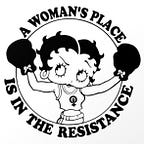Big Little Lies: the second season brings lots of questions and few answers
THIS ARTICLE HAS SPOILERS
There were many occasions when I asked myself if a second season of Big Little Lies was really necessary. After watching all seven episodes, I still don’t know if there was really the need for another season. One thing, however, is undeniable: this season brought more questions than answers.
Season two is mainly about trauma. Celeste (Nicole Kidman) feels guilty for Perry’s death and also because he was violent with her – Perry left a legacy of horror to her.
When part of the truth is finally discovered, Perry’s mother, Mary Louise (Meryl Streep) doesn’t believe that Perry was able to be violent with Celeste – she asks why Celeste didn’t go to the police, as if this decision was an easy one to make – or to rape Jane (Shailene Woodley) – she starts blaming the young lady, asking if she was sure about it and if she had many sexual partners.
Celeste’s therapist points out why many women can’t leave an abusive relationship: just like a soldier that suffers from PTSD, they also can’t function in a non-violent environment. Getting used to the violence is more harmful than violence itself.
Speaking about trauma, Jane starts going out with a work mate – according to two lines, he has Asperger’s syndrome. As a rape victim, she will have troubles about intimacy.
Mary Louise wants to get to know her grandson Ziggy and be part of his life, which generates discomfort and an ethical dilemma: does the rapist’s family have rights over the child that is born from rape? Besides that, as she sees Celeste struggling to recover, Mary Louise decides to go to court to get her grandsons’ custody. This will be the main conflict of the season.
Perry still is one of the main characters. He wasn’t a monster – he was a common man, charming, a good father, loved by his mother. Does this mean that we are surrounded by monsters? No: it is given a reason for Perry’s behavior. The reason? His own mother. Yes, dear readers: the person who is guilty for a man being violent with a woman is another woman.
Bonnie (Zöe Kravitz) is visited by her mother, and we find out that their relationship was never good, and it even caused Bonnie many traumas. In a series with few black characters, to put a black woman – Bonnie’s father is white – as an abusive mother is very negative. We’re not saying that black people cannot harm anyone, but that the choice was a bad one, in special because the opposite happened in the book: Bonnie’s father was the abusive parent. Why was this change made and what does it mean? Was it an attempt to make all stories around women?
Meanwhile, Madeline’s (Reese Witherspoon) husband finds out that she cheated on him and Renata (Laura Dern), by far the most interesting character, deals only with her husband’s bankruptcy, the loss of her own money and a lot of hysteria.
Behind all the lies bothering the Monterey Five – and we aren’t talking about the most obvious lie – there was the lie told to director Andrea Arnold, who had free reign to make the season as she wished, but in post-production she lost this freedom and saw the director of the first season, Jean-Marc Vallée, editing her material so that the series would have a homogeneous look. The result was more random than Sharp Objects, another series by Vallée.
Using the characters from the praised book written by Liane Moriarty, Big Little Lies went on with two male screenwriters: David E. Kelley, also producer, and the barely known Matthew Thinker. Wouldn’t it be interesting, in a series about five women, to have at least one female screenwriter writing it?
Season two of Big Little Lies is way less interesting and impactful than season one. The best wasn’t what was happening on the screen, but the Big. Little Questions that appeared in our mind while we watched the common erasing of the views of a female writer and a female filmmaker.
